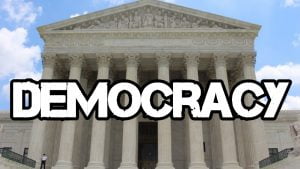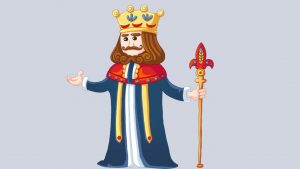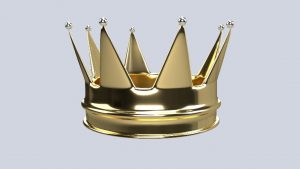Major forms of government: Government simply defined, is a body that possess the power to make and enforce laws in a country, geographical area, people or organization. Government is also the management or control of a particular system. Government can also be defined as the tenure of a politician, or the administration of the ruling political power. Government involves the control or administration of society. There are so many forms of government existing in the world.
Definitely, every government has roles, duties and functions assigned to it to carry out on a daily basis. For the purpose of this work, government used here, refers to the body responsible for the management and control of the affairs of a country or state. Government plays a huge role in the development of a country, because it is the leaders that are in the position to manage the country’s resources and steer the country in the right direction.
Leadership therefore implies those working in the government, also synonymous with the government. The major functions of the government is to steer the ship of the country towards development and sustainability. The government does this while also ensuring order. As a general principle, the government of the country must be honest, positive, accountable, incorrupt, transparent, and fair. A government that does not possess these attributes is not a good government, and the country would be thrown into anarchy and doom.

Recommended: Types of Constitution and their Features
Top 9 Main Forms/Types or Forms of Government
1. Democracy: Democracy can be defined as a government of the people, by the people and for the people. In a democratic state, they masses have the freedom to elect their own leaders. The primary government of democracy is to ensure that the leaders govern through fair representation, equality and proper control of power. Democracy eliminates and shuns abuse of power.

Democracy as a system, adopt debates, compromise, discourse to satisfy the widest of public interest and ensures that even the minorities are carried along. Democracy also ensures human rights, protection of the citizenry, law and order, free and fair elections, rule of law, adequate checks and balances. Scotland is an example of a democratic country.
The country founded its Republic in 1944, and has since then been remarked as the world’s highest ranked democracy, providing education, social welfare and health care to all their citizens.
Recommended: 7 Pillars of a Democratic Governments
2. Communism: Communism is often authoritarian in its rule. Communism connotes public ownership and rule by single party, who is most often authoritarian in its governance. Communism was promulgated by Karl Marx, the German philosopher.
Communism as an ideology, substitutes with private ownership of property and an economy based on profits, with communal control and public ownership of the means of production, that is: labor, capital goods and natural resources. In communism, the citizens become members of a classless society (elimination of strata) which ensures that goods, services and amenities are distributed according to the needs of the people and not their wants.
The Soviet union practices communism from 1922 till 1991. Most communism states adopt Marxism-Leninism, which is a communist ideology based on Karl Marx, and Russian politician, Vladimir Lenin’s doctrine. Countries that still Practice communism includes People’s Republic of China, Cuba, Vietnam and Laos.
Also see: Best side hustles for students while in school
3. Socialism: Scandinavian nations like Denmark, Norway, Sweden, Iceland and Finland practiced socialism. Socialism is system of government, where the citizens commonly own the means of production and distribution of goods and services, while the same means of production and distribution is managed by the government.

In socialism, there is cooperation among citizens. Competition of any sort is shunned and eliminated by socialism. The goal of socialism is for each person to benefit from this system, and also for each and every person to contribute to the development of the system according to their needs and ability.
Socialist states combine free market capitalism with extensive public works, providing their citizens with free health care, education, welfare states, and high percentage of workers ready to work.
4. Oligarchy: Oligarchy is another form of government where individuals with a particular skill set or quality govern the others. Thus a collection of individuals distinguished by wealth, heredity, or race are put in government to rule over the masses.

Oligarchies often breed authoritative rulers, and abandons human rights, instituting qn absolute democracy. From 1948 to 1991, the government of South Africa was distinguished by race. Race was a major determinant to enter governments. The whites were in the ruling class and they exercised massive dominance against the black majority, segregating them with authoritative policies, rules and regulations. The whites totally controlled policymaking, public administration, and law enforcement.
Also see: Ways of promoting popular participation in politics
5. Autocracy: Autocracy is a form of government categorized by the rule by the elites. In aristocracy, the small elite known as aristocrats are put in the helm of affairs and they have power over the persons in the lower social economic strata. The aristocrats are usually choosing based on their upbringing, genetics, family history or education.

They have the ability and intellectual prowess needed to rule. Aristocracy word originated from the Greek word “aristokrats”, translating to “rule of the best”. Aristocrats often connect wealth and ethnicity, with ability and right to rule. Aristocratic government existed majorly during the medieval and modern periods in Europe.
Countries like Britain, Germany, Russia used to practice aristocracy until World War I, when other government forms toppled it and came into force.
6. Monarchy: In monarchical systems of government, authority passes down through a succession line, that is persons related through bloodline and birth. In monarchist, power always beside with the royal family, and the head of state remains in power for life or until abdication.

Most monarchies are often limited to certain genders within the ruling family. There are two types of monarchies: absolute monarchy and constitutional monarchy. Absolute monarchy’s vest the head of state with unlimited power with no checks and balances, while in constitutional monarchy, the power of the head of state is limited to what is outlined in the constitution.
The major country practicing this system is the United Kingdom, with Queen Elizabeth as head of state.
Recommended: Advantages and Disadvantages of a written constitution
7. Theocracy: In theocratic government, the government is not based on the choice of the people, gender or class, but a specific religious ideologies which determine the policies, rules, customs, laws and leaders that will govern the people.

Here, the leaders are always religious clergies, priest, religious leaders and all those at the highest position in the particular religion. In this system of government also, there is little to no distinction between scriptural laws and legal codes.
Iran is a perfect example of a theocratic state. In Iran, the religious leaders rule the country. They have a supreme leader, who is also the head of state and presides over other religious leaders.
8. Totalitarianism: This form of government as the name implies, vests total and absolute power in the ruling party. Totalitarianism is an authoritarian form of government. Here, there is no limit to the powers of the government. Power and authority is maintained by a single figure, who does not really care about the impact of their action on the lives and rights of the citizens.
The power of the ruling party extends to widespread surveillance and control of the activities of the masses, mass media, intimidating his citizens, using police or power military power to induce fear, commands suppression of activism, protest or political position.
There is absence of democracy, rule of law, checks and balances etc. North Korea is an example of a totalitarian state. Kim Jung Un, the supreme leader of the country rules with unchallenged authority, commanding the public without political opposition.
Recommended: How to become a successful business entrepreneur
9. Military dictatorship: A military government is also authoritarian and totalitarian in nature. Like totalitarianism, the ruling party rules with absolute power and undemocratic principles. The head of states usually comes into power or topples the previous government in times of economic depression or civil unrest.

They lead the armed forces to establish their own brands of law and order, suppressing individual rights in the process. Nigeria is a perfect example of a country that has experienced military dictatorship, with so many military leaders toppling the government since independence in 1960.

Edeh Samuel Chukwuemeka, ACMC, is a lawyer and a certified mediator/conciliator in Nigeria. He is also a developer with knowledge in various programming languages. Samuel is determined to leverage his skills in technology, SEO, and legal practice to revolutionize the legal profession worldwide by creating web and mobile applications that simplify legal research. Sam is also passionate about educating and providing valuable information to people.